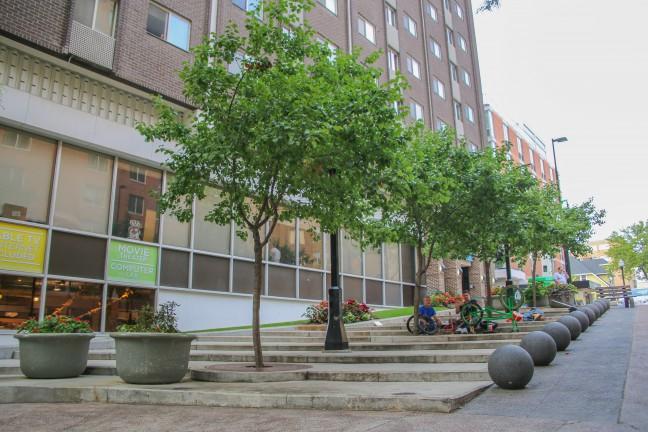Madison’s far-left ideals, which the city was once famous for are fading, as homeless and the working poor are slowly forced out of downtown.
In 2012 the City Council made changes to a bill against aggressive panhandling, adding language that banned panhandling around Capitol Square and on State Street. Some civil rights groups, however, are not sitting idly while the government strips the poor and homeless of their rights.
The American Civil Liberties Union has accused the city of infringing on panhandlers’ first amendment rights, based on a case in early August through federal court of appeals in Chicago, where the panhandling ban in Springfield, Illinois, was struck down for the same reason.
Larry Dupuis, the legal director of Wisconsin’s ACLU chapter, said “[Getting rid of the pan handling ban] may make it harder for the mayor to create a bubble that is perceived as safe. But poverty is real, poor people are real and they have real needs. And the constitution protects their right to speak out about their needs.”
In addition to taking away their right, the measure attempts to “clean” the homeless from their new vision of downtown Madison. Recent plans to revamp the central business district are certainly geared towards business.
As buildings like The Hub and Domain begin leasing, and posh bars pop up along State Street’s historic sidewalks, the homeless and the poor are losing their place in a city noted for its liberalism. It is clear the interests of businesses and the well-off come over the lowest in society.
It brings into question our rating as the “Most Livable City” in 2014. Most livable for whom? If you are an affluent Madisonian who has the means to partake in Madison’s award-winning restaurant scene, well-funded westside schools and its world-renowned healthcare facilities, then Madison is certainly one of the best places in the country to live.
However, the needy are unable to afford to use all of the city’s benefits. Due to rent prices downtown, the poorest Madisonians live on the outskirts in unsafe neighborhoods because it would damage Madison’s reputation as a “paradise for all.” They commute to work in the glitzy isthmus, but they cannot afford to live there, and those who make the streets their home are being coldly swept away by a city government that sees them as problem instead of as their fellow citizens.
Panhandling is unfortunately a source of income for some of Madison’s poorest, and the city government is taking that away from them simply because it’s a nuisance to the wealthy. The message from the city is loud and clear: If you don’t have the income to invigorate the economy, then we don’t work for you.
Many move to this city to live in a community, which upholds liberal social ideals as one of its main tenets. However, there is nothing liberal about casting to the side those who have nothing. We cannot claim to be a bastion of the American left if we have a municipal government which prioritizes the handing over of the city center to business interests over the welfare of its poorest inhabitants.
Unless the citizens of Madison and other groups like the ACLU speak out, the city government will keep on with their plan to make Madison heaven on earth for the well-to-do.
Governments have catered to the interests of business and the affluent for far too long, and now they are trying to take away the rights of those who were dealt a poor hand in life. It’s on all of us to show the mayor and the world Madison is a city that fights for the less fortunate and aims to create a community for everyone.
Nichalous Pogorelec ([email protected]) is a junior majoring in sociology.














